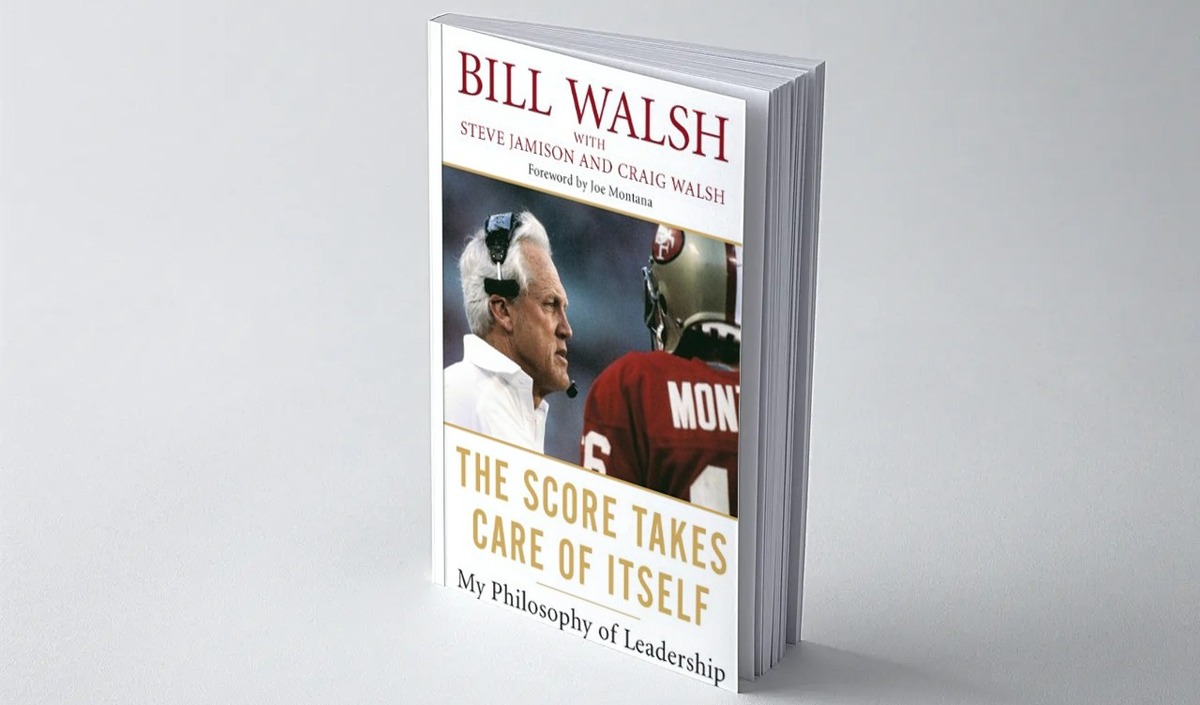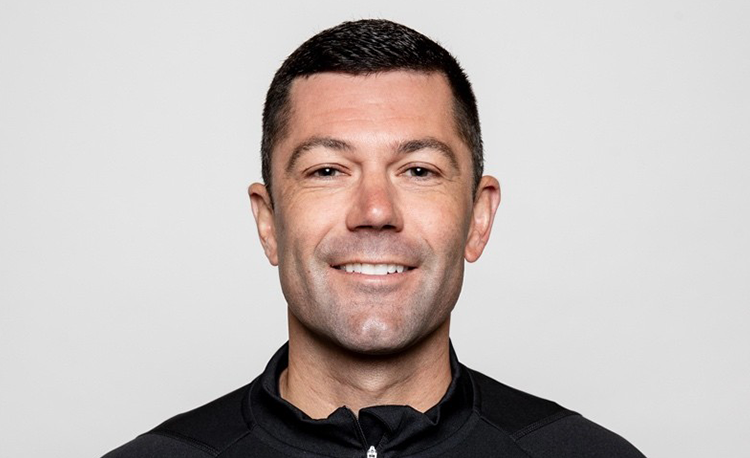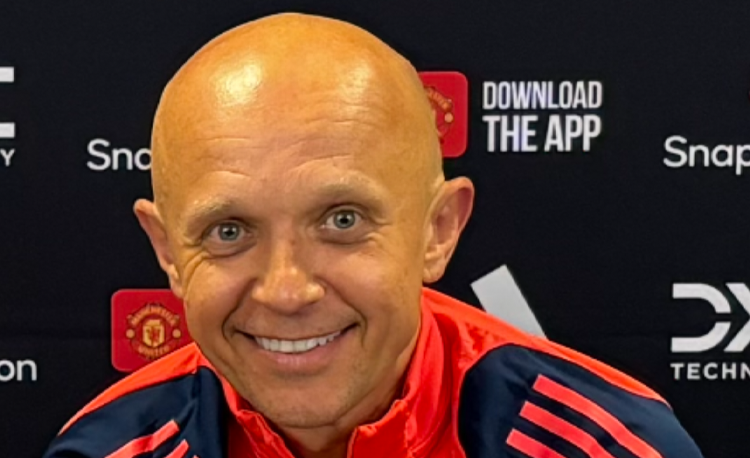You are viewing 1 of your 1 free articles
You do it my way
Bill Walsh won three Superbowls with the San Francisco 49ers. When he took over as head coach in 1979 they were arguably the worst team in American football history.
Within two years they were the best. This sympathetic and honest book, published after Walsh’s death in 2007, but largely in his own words, explains in detail the methods he used to achieve extraordinary success. His philosophy stands as a comprehensive “how to” guide for anyone dedicated to reaching the pinnacle of sporting success.
To say Bill Walsh took football coaching seriously is an understatement. Professional football “is the moral equivalent of war,” he says. After an extended apprenticeship in university and lower league football, one senses he had pieced together a precise, all-consuming battle plan.
Walsh didn’t just set about changing the way the team learned and trained. The entire 49ers organisation from the receptionists up were subject to his all-powerful Standard of Performance. Shirts had to be tucked in, promptness was required, there was no swearing, no fighting, no smoking on premises (this was the 1980s), good sportsmanship by all, no sitting down in training, no enemies, personal or organisational, and above all, no bending the rules. One administrator arrived for his first day at work without a tie - Walsh told him to go and buy one that morning.
There was obsessive attention to detail. For example, Walsh got his coaching staff to identify 30 specific and separate physical skills needed to master the offensive linesman role at the highest level - and then created a drill for each and every one of them. They were to be practised relentlessly until their execution at the highest level was automatic - “routine perfection” he called it.
He spent months compiling manuals for budgets, operations, personnel, detailed job descriptions and evaluations, performance goals, expectations. Walsh was aware that it all seemed mad, but he could not stop. He claimed no one in the 49ers outworked him.
Many of his philosophies are laid out in lists (there are 15 in the book) and the joke was that he had lists of lists in his filing cabinet. Nine Steps to Treating People Right, Keeping Staff Members Focussed, 13 Habits for Being a Leader, Essential Traits in a Staff Member, and so on. They serve as constant reminders for considered actions, ways of speaking to people, ways to encourage, improve, deal with crises and triumphs.
Performance requirements were enhanced by innovations. Walsh got players to coach players, experienced professionals to teach rookies, he even tried getting players to coach their permanent team replacements in a kind of job shadowing, though this didn’t work too well.
None of this could have been achieved without Walsh’s skills as a teacher, with the expertise not only to show players how they could get better and better, but to demonstrate how they could pass this on to others. He emphasized talking to the “bottom 20%” of his players, “the back-ups, the benchwarmers, the special role players”, trying to make them feel as important as the stars and recognising that in a team, they can make the difference to whether you win or lose.
As far as the game itself was concerned, Walsh was at the centre of creating an approach to attacking plays involving more passing, what became known as the West Coast Offense. At first this brought him ridicule and criticism, but eventually it was accepted as a new style of the game entirely.
Critics couldn’t understand why he resisted setting a target, such as finishing in the top half of the league in two seasons or winning the Superbowl in five. His answer was that competency was the goal, creating an organisation that did everything right. Winning would come later. With the perfect team supported by the perfect organisation, the score would take care of itself. And indeed it did. Though Walsh’s first season was as bad as the one before while he bedded down his regime, at the end of his second season he won the Superbowl.
And it is worth pointing out that the success wasn’t bought in the way that we are used to in the English Premier Football League. The 49ers won their first Superbowl championship under Walsh with the lowest salaries of any team in the NFL.
But implementing the Standard of Performance was done with an iron will. Walsh was not a man to take on, and was ruthless in disposing of those who criticised or broke his rules. Randy Cross, a veteran 49er, said: “Bill Walsh could burn a hole right through you with his eyes. Right through your bones and everything.”
Walsh succeeded by trying to think of everything. He was fully aware of the dangers of doing well, and even coined a term for it: Success Disease. He was a master of perfection, but understood that it was a fleeting thing that could never be held on to for long. “Mastery requires endless remastery. In fact, I don’t believe there is ever true mastery. It is a process, not a destination.”
With commentary from players and Walsh’s coaching associates interspersed between chapters, there is a slightly disjointed feel, though the insights add to understanding Walsh’s complex personality.
Near the end of the book, the tone changes dramatically and the positive, can do principles of his operating system give way to a certain amount of bitterness. Having achieved so much he found that both his own and others’ expectations of himself continued to rise. Winning a Superbowl wasn’t enough - he had to win the next one, and the next one. He started giving himself zero points for winning and negative points for losing. In the end Walsh admits he burned out, and had to resign or breakdown. He never got over seeing his successor win the Superbowl with “his” team.
For all the quality of performance Walsh insisted upon, he was of course, far from perfect. He didn’t delegate well, as only he could do (many) things to his own exacting standards. That he didn’t follow his own advice that a leader should know when to quit (before it is too late) should not diminish his astonishing achievements. Lots of people want to be great, have a desire to be the best, but Walsh also had in his head the know how to make it happen.
The Score Takes Care of Itself - My Philosophy of Leadership, Bill Walsh with Steve Jamison and Craig Walsh.
Penguin Group. 251pp
Editor's Picks
Deep runs in the final third
Using the goalkeeper in build-up play
Pressing principles
Intensive boxes drill with goals
Penetrating the final third
Creating and finishing
My philosophy
Pressing initiation
Compact team movement
Coaches' Testimonials

Alan Pardew

Arsène Wenger

Brendan Rodgers

Carlos Carvalhal

José Mourinho

Jürgen Klopp

Pep Guardiola

Roy Hodgson

Sir Alex Ferguson

Steven Gerrard
Coaches' Testimonials

Gerald Kearney, Downtown Las Vegas Soccer Club

Paul Butler, Florida, USA

Rick Shields, Springboro, USA

Tony Green, Pierrefonds Titans, Quebec, Canada
Join the world's leading coaches and managers and discover for yourself one of the best kept secrets in coaching. No other training tool on the planet is written or read by the calibre of names you’ll find in Elite Soccer.
In a recent survey 92% of subscribers said Elite Soccer makes them more confident, 89% said it makes them a more effective coach and 91% said it makes them more inspired.
Get Monthly Inspiration
All the latest techniques and approaches
Since 2010 Elite Soccer has given subscribers exclusive insight into the training ground practices of the world’s best coaches. Published in partnership with the League Managers Association we have unparalleled access to the leading lights in the English leagues, as well as a host of international managers.
Elite Soccer exclusively features sessions written by the coaches themselves. There are no observed sessions and no sessions “in the style of”, just first-hand advice delivered direct to you from the coach.









